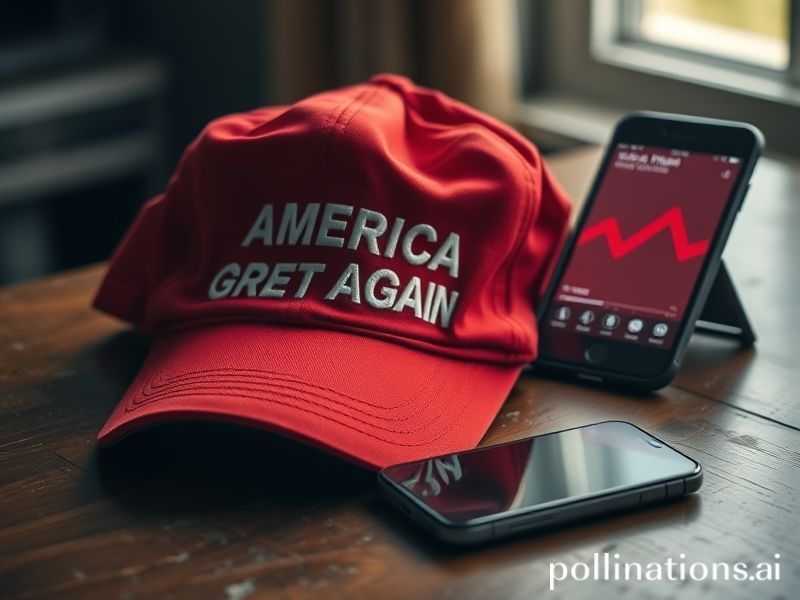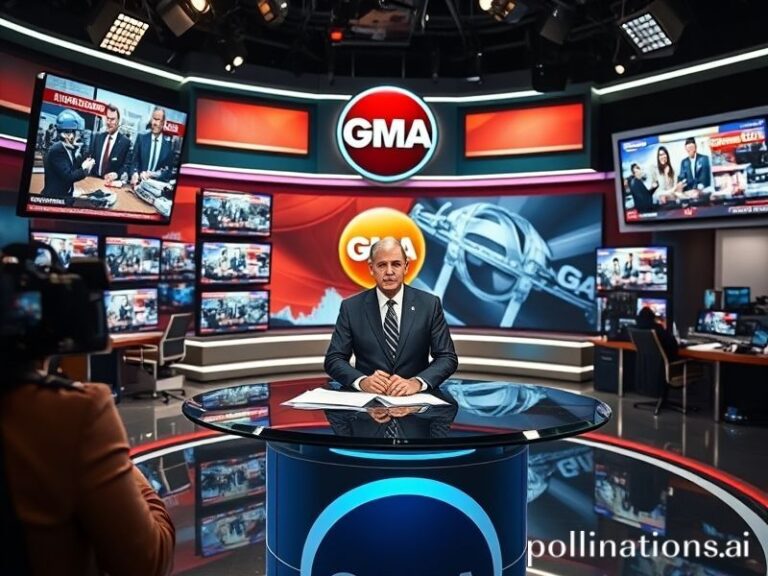Global Spectatorship: How Trump’s Approval Ratings Became the World’s Most-Watched Political Reality Show
**The World’s Favorite Reality Show: Why Trump’s Poll Numbers Still Matter (Even If You’d Rather They Didn’t)**
While Americans obsess over their former president’s approval ratings with the fervor of teenagers checking Instagram likes, the rest of us watch from the cheap seats of this tragicomedy, popcorn in hand, wondering when the intermission might finally arrive. Trump’s polling numbers—hovering around the low-to-mid 40s depending on which oracle you consult—have become something of a global weather vane, indicating not just American political climate patterns but the broader atmospheric conditions of our collective sanity.
From Berlin to Beijing, policymakers monitor these figures with the same morbid fascination typically reserved for slow-motion train derailments. The numbers suggest that roughly four in ten Americans view favorably a man who, depending on your geographic coordinates, represents either the last bastion of Western civilization or its most spectacular self-own since the invention of democracy. This statistical stalemate has transformed American politics into the world’s most expensive spectator sport, with quarterly ratings updates replacing actual seasons.
The international implications are deliciously absurd. European diplomats, who once navigated complex treaties and centuries-old alliances, now find themselves deciphering the political equivalent of a reality TV show’s Nielsen ratings. “The polls show Trump’s support holding steady among rural voters,” they’ll whisper over $200 bottles of wine, as if discussing the Byzantine Empire’s trade routes rather than the political preferences of people who think “international relations” means dating someone from the next county.
In emerging markets, Trump’s numbers serve as a peculiar form of currency hedging. When his approval drops, the Mexican peso strengthens. When it rises, Canadian real estate agents start learning Mandarin. The phenomenon has spawned an entirely new field of study: Trump-ology, where data scientists attempt to correlate approval ratings with everything from global wheat prices to the frequency of awkward silences at NATO cocktail parties.
The developing world watches with particular interest, having discovered that American political instability makes for excellent leverage in trade negotiations. “You think your former president might return to power and scrap our trade deal?” they’ll ask with practiced concern, while quietly calculating how many additional concessions this uncertainty might yield. It’s the diplomatic equivalent of selling earthquake insurance during a seismologist convention.
Perhaps most fascinating is how Trump’s approval ratings have become a sort of international Rorschach test. The Japanese see a society struggling with modernization. The Russians detect weakness in democratic institutions. The Australians just wonder why Americans can’t be more like them—preferring their populist disruptions to involve merely rugby scores and beer prices.
These persistent poll numbers—immune to scandal, indictment, and common sense—have transformed American exceptionalism into something more akin to American imperviousness. While other nations’ politicians face immediate extinction for minor transgressions, Trump appears to operate under political physics borrowed from a different dimension, where traditional rules of cause and effect have been replaced by pure spectacle.
The broader significance lies not in the numbers themselves but in what they reveal about our global predicament: we’ve all become unwilling participants in a reality show none of us auditioned for, where the season finale keeps getting postponed and the producers keep changing the rules. Trump’s approval ratings serve as a monthly reminder that in our interconnected world, one nation’s political fever dream quickly becomes everyone’s shared nightmare.
As we barrel toward another election cycle, international observers have learned to treat these polling numbers like weather forecasts in hurricane season—necessary preparation for the inevitable storm, but ultimately powerless to prevent it. The only certainty is that whatever the polls predict, the rest of us will be watching, wondering when this particular reality show will finally jump the shark, even as we suspect it already has—and kept swimming anyway.







